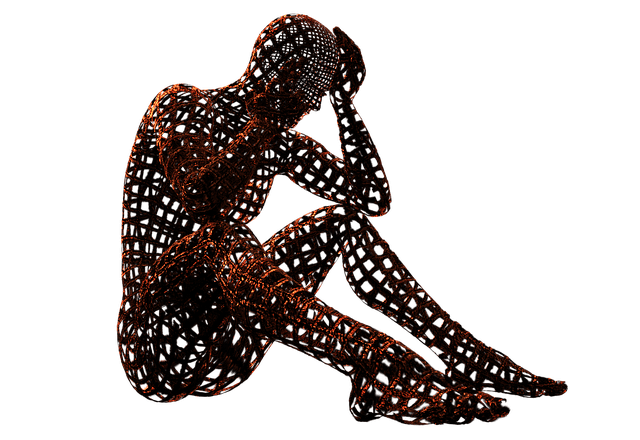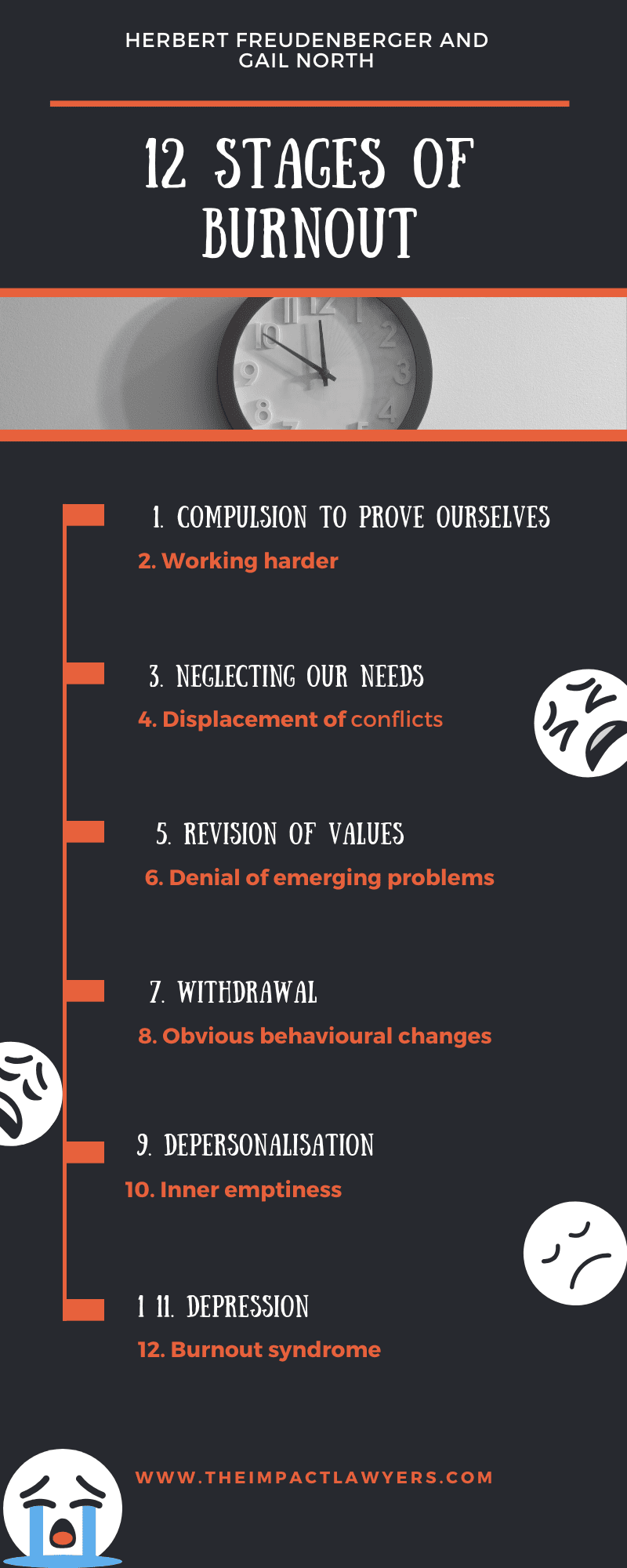Anti-burnout #1: Recognising 12 steps to burnout
The last few weeks have been chaotic and alarming for pretty much everyone. Especially for medics and the vulnerable. Some groups are at high risk, but no-one is safe. COVID-19 does not discriminate. Even the young and healthy have been struck down.
And vast tracts of the world are locked down in a silent dystopia.
And lawyers too.
This is the first in a series of blogs on the overlaps between the social effects of coronavirus, burnout and work life. It’s written mainly with lawyers in mind, but the aim is to be useful to all. I’ll share some general principles which can be applied wherever - businesses, creatives, managers, start-ups, professionals, whoever …
This blog kicks off with a look at some ways in which we can identify whether we’re approaching burnout. Future posts will explore some of its psychodynamics and some self-help hacks. The hope is that by doing some ‘prehab' (pre-habilitation), we avoid rehab. I have written elsewhere about prehab.
Just under a year ago, in May 2019, ‘burnout’ was included in the 11th revision of the World Health Organisation’s International Classification of Diseases (ICD-11) as an occupational phenomenon. Specifically, it is not classified as a medical condition.
The ICD-11 states that, “burn-out is a syndrome conceptualised as resulting from chronic workplace stress that has not been successfully managed. It is characterised by three dimensions:
- feelings of energy depletion or exhaustion;
- increased mental distance from one's job, or feelings of negativism or cynicism related to one's job; and
- reduced professional efficacy.”
The WHO is working on developing evidence-based guidelines to enhance mental wellbeing in the workplace.

Herbert Freudenberger (who originally coined the term ‘burnout’ as we use it today) and Gail North outlined 12 stages of burnout in the mid 1980s.
The stages can be regarded as factors in a constellation of experience. They are not necessarily sequential, but for many form a recognisable pattern.
I find it helpful to visualise the stages as hours on a clock face. You use an image that works for you:
- A compulsion to prove ourselves
Most lawyers start their careers with ambition. This can turn into determination and compulsion when pressures increase. Pressure to hit billing targets and hours worked often start on day one. And then we need to keep up with peers and not to be out-performed.
- Working harder
We then need to maintain targets and put in long hours. This can lead to an obsession with autonomy and independence. Some of us develop a notion of our own irreplaceability. Sometimes this can lead to trying to fit into an organisation that we begin to sense doesn’t suit us.
- Neglecting our needs
With most of our energy devoted to work, often little time is left for relaxation and recreation. Relationships begin to suffer and sleep is lost. Initially this can seem like a necessary and altruistic commitment to our career or organisation. It can be exciting to feel like a martyr.
- Displacement of conflicts
A vague sense of unease develops, a sense that something isn’t quite right. But at this point it feels easier to try to cope with the pressures rather than to think about the underlying anxieties. Often around this time physical symptoms can begin to present themselves.
- Revision of values
Isolation, avoidance of conflict and a denial of basic physical needs can change our perceptions. Personal values are revised and one's standard of evaluating self-worth is transferred to work status and achievement. This can lead to emotional blunting.
- Denial of emerging problems
Others now begin to notice, but tolerate, behavioural changes such as negativity, irritability, and self-preoccupation. We may become less sociable, or aggressive or sarcastic. We begin to acknowledge the pressures but attribute them to work demands, rather than to the way that we’ve adapted to cope with the cultural expectations of the workplace.
- Withdrawal
Some become withdrawn and socially isolated. Social contact is reduced to a minimum. We can feel increasingly without hope or direction. It’s easy at this point to turn to alcohol, drugs or other potential addictions.
- Obvious behavioural changes
Gradually colleagues, clients and family are unable to overlook the behavioural changes. Fellow lawyers may talk behind backs about colleagues and clients may make a formal complaints. Conflict in the workplace and at home can become the norm.
- Depersonalisation
We no longer see ourselves or others as valuable and no longer acknowledge our own needs. All that matters is what is happening at the moment; past and future are forgotten. Living can turn into a series of mechanical functions.
- Inner emptiness
We start to experience a sense of inner emptiness and may use food, drugs, alcohol, sex or gambling to fill the void. Leisure time can feel like dead time.
- Depression
Burnout commonly overlaps with clinical depression. We may begin to feel exhausted, hopeless, indifferent. It may seem like life has no meaning.
- Burnout syndrome
At this point suicidal ideation is common. Sometimes it is acted out. Immediate medical attention is required following mental and physical collapse.

That’s it for this time. I’m sorry to have to end on such a down note. But that’s where a lot of us will find we’re at over the next weeks and months. Doesn’t matter whether we’re the most junior paralegal or managing partner of a international firm.
The virus doesn’t discriminate; nor does burnout.
But maybe we can rewind the clock a bit?
Next time we’ll look at some psychodynamics of burnout. (For now, just think of ‘psychodynamics’ as jargon for the stuff that goes on in our minds that we are very often unaware of. Our blind spots, if you like).
Related links
Main menu



